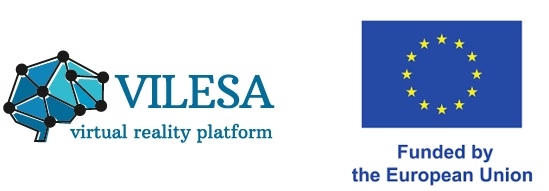
The project Development of a virtual learning space as a tool for developing students’ critical thinking, communication, collaboration and creativity skills in the context of COVID-19 (VILESA) No. 2021-1-LT-01-KA220-HED-000023551 is aimed at introducing students to new innovative learning spaces and to solve the problems of application of modern teaching/learning methods in social sciences by digitizing the study content. The digital transformation has been identified as one of the key pillars of the EU’s recovery from COVID19, promoting new forms of economic growth and strengthening the EU’s resilience. Agreed at least 20 percent funds under the Recovery and Resilience Instrument for digital transformation, including for small and medium-sized enterprises. These funds should stimulate the development of next-generation digital technologies in Europe, build capacity in strategic digital value chains, accelerate the deployment of ultra-high capacity and secure network infrastructure across the EU, and modernize the digital capacity of education systems. One of the goals – creating a modern school to supplement traditional educational methods with the latest technologies. It is stated that modern person needs to be able to work and study with the help of information technology.
The aim of the project is to solve the problems of application of modern teaching/learning methods in social sciences by digitizing the study content by using Virtual reality platform. The application of modern technologies to the digitization of study content encourages creativity and creates opportunities for users to get involved in the content creation process themselves. Encouraging creativity, adapting content to the younger generation of learners (Generation Z) is based on developing practical skills while reducing environmental impact and contributing to business sustainability. The project is intended to reinforce and sustain such positive behavioral trends.
Implementation
There will be two intellectual outputs created to reach the project’s goals: IO1 digitized case studies and IO2 – a virtual reality platform used by Generation Z, teachers and studying adults. One main objective of the intellectual output 1 is the development of case studies for the IO2 – a virtual reality learning platform. This Output will be useful for students pursuing their knowledge about new cases related to their study subjects that will be transformed to a virtual reality platform. Output 1 digital case studies will consist of 9 cases that will be established by each project partner. It will include different study program subjects. Target groups of the project will be: bachelor students and Erasmus students, teachers and studying adults. It follows that the main focus of working with Output 1 will be on new cases for study programs subjects in all partner countries and digitization of final content. The lead partner of IO1 will be Vilniaus kolegija/ Higher Education Institution (VIKO). The lead partner of IO2 will Iron Cat, private company in Lithuania. All partners will contribute in order to bring an innovative approach by collecting prior experience, piloting and testing within a research context. The platform will be open to use for other similar educational organizations which will find these features suitable for their learning processes. Product and process innovation, internationalization and high growth are considered the key characteristics of new intellectual output 2 – development of virtual reality learning platform. We strive to: a. use product considered to be new to at least some of the target groups; b. use a technology of less than five years old. Knowledge, skills and general competence about this Output will be useful for students pursuing their knowledge about new innovative virtual spaces possibilities and new ways of learning.
Results
The virtual reality platform and case studies developed by the researchers on the basis of the results obtained in the first activity of the project will be provided to students of the partner institutions as a main material included in the study of the subject. The application of modern technologies to the digitization of study content encourages creativity and creates opportunities for users to get involved in the content creation process themselves. Encouraging creativity, adapting content to the younger generation of learners (Gen Z) is based on developing practical skills while reducing environmental impact and contributing to business sustainability. The project is intended to reinforce and sustain such positive behavioral trends. The results of the project will be disseminated by creating an open access platform, which provides digitized content of the study subject. The latter will be available to users seeking to acquire practical skills in specific areas through the use of a virtual reality platform and the application of the acquired subject knowledge to the solution of practical situations.